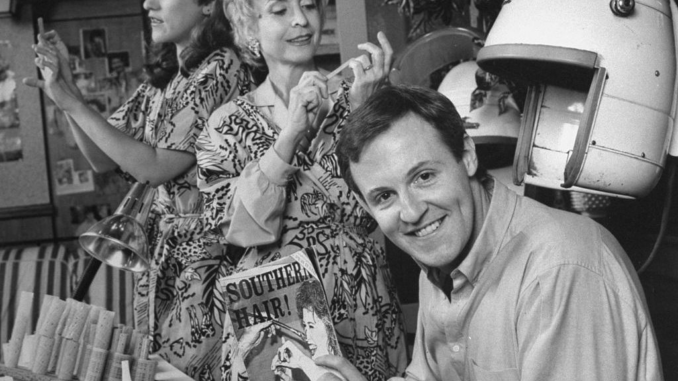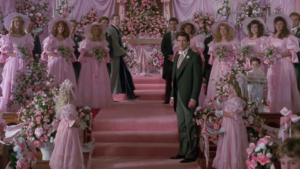
When two people stand before their family and friends on their wedding day, they make a promise—an oath that will guide them through life’s inevitable highs and lows. These promises are more than just words; they are a blueprint for the journey they are about to embark on together. Wedding vows, at their core, symbolize sacrifice, commitment, and the beauty of love. They encapsulate the delicate balance between sacrifice and joy that is essential to any successful marriage.
In this article, we’ll explore how wedding vows change everything for the couple, shaping their understanding of love and life. We’ll dive into how these vows represent not just a celebration of love but also the promise of sacrifices and the anticipation of joy. From “for better or worse” to “in sickness and health,” wedding vows teach us that true love isn’t just about moments of bliss but also about enduring life’s struggles together.
Why Wedding Vows Matter: The Power of Promises
Wedding vows are more than poetic lines or beautifully written scripts—they are powerful promises that bind two people together. Whether traditional or personalized, the act of exchanging vows represents the deep commitment both individuals are making to one another. It is a moment when love is both spoken and promised, and it marks the beginning of a shared journey, full of trials and triumphs.
These vows are intended to reflect the couple’s values, beliefs, and the strength of their commitment. From the very first “I do” to the final words spoken during the ceremony, wedding vows are a sacred pact, a verbal contract that transcends the fleeting emotions of the day. They stand as a reminder that love, though beautiful, requires hard work, sacrifice, and, yes, even hardship.
Sacrifice in Wedding Vows: The Unseen Strength of Commitment
The idea of sacrifice in wedding vows is often overlooked, yet it plays a crucial role in the strength of a marriage. To truly commit to a lifetime together, both partners must acknowledge that sacrifices will be necessary along the way. This could be giving up personal ambitions for the sake of a shared goal, compromising on difficult decisions, or making the hard choice to put your partner’s needs before your own.
When couples say “for better or worse,” they are not simply speaking about the good times—they are acknowledging that life’s challenges will come, and they are willing to face them hand in hand. Whether it’s financial struggles, health issues, or personal losses, the vow to stick together through thick and thin is rooted in sacrifice. Sacrifice in marriage is not just about giving something up; it’s about giving in love, with the understanding that it will lead to a stronger, more resilient partnership.
Joy in Wedding Vows: Celebrating Love’s Triumph
While sacrifice is a necessary element, joy is what makes the sacrifice worthwhile. The vows exchanged during a wedding also celebrate the happiness, unity, and dreams shared between two people. “For richer or poorer” speaks not just to the potential struggles, but to the shared joy of building a life together, regardless of material wealth. “In sickness and health” recognizes that there will be moments of difficulty, but it also celebrates the joy of caring for each other through it all.
Weddings are a celebration of the joy that love brings. The vows act as a contract, not just for enduring pain and hardship, but also for creating joy together. These promises are a recognition that while marriage requires sacrifice, it is the shared moments of joy—be it in laughter, companionship, or love—that give meaning to the sacrifices made.
The Role of Vulnerability: How Wedding Vows Strengthen Emotional Intimacy
At the heart of wedding vows lies a deep vulnerability—an openness to both the unknown and the known. When couples make their vows, they are not only committing to each other’s happiness but also to being there in times of uncertainty. Marriage requires the willingness to be vulnerable with your partner, to open up your heart without the guarantee of always being understood.
By expressing vulnerability through wedding vows, couples acknowledge the inevitable challenges they will face. But vulnerability also fosters emotional intimacy, strengthening the emotional connection between partners. The willingness to share fears, hopes, and dreams—both before and after the wedding—builds a foundation of trust that can weather the toughest storms.
The Challenge of Balancing Sacrifice and Joy in Marriage
Marriage is a delicate balance between sacrifice and joy. The beauty of wedding vows lies in their ability to capture this balance. Sacrifice without joy can feel like a burden, while joy without sacrifice can feel shallow. It is in the delicate interplay of the two that the true strength of a marriage is found.
Take, for example, the vow “to have and to hold.” This simple phrase symbolizes the promise to support your partner emotionally and physically. But it is also an implicit commitment to sacrifice—for each other, for the relationship, and for the future. It means putting your partner’s needs above your own at times, yet it also signals a deep sense of joy in knowing that the other person is there to support you in return.

The Beauty of the ‘For Better or Worse’ Vow
The “for better or worse” vow is perhaps the most profound statement of sacrifice. It acknowledges that life will not always be perfect, and neither will the relationship. There will be days of bliss, but there will also be moments of struggle. This vow asks both partners to embrace the reality that challenges will come, but their love will endure.
In the context of a marriage, “for better or worse” doesn’t mean that every moment will be joyful. It means that the couple is willing to face the bad times together and find strength in one another. The beauty of this vow is that it recognizes the depth of life itself—there are no guarantees of perpetual happiness, but there is a promise to persevere through whatever comes.
The Everlasting Bond: How Wedding Vows Shape a Marriage
One of the most transformative aspects of wedding vows is their ability to shape the entire trajectory of a marriage. They set the tone for the relationship, reminding the couple that love is not a fleeting emotion but a lifelong commitment. Every vow exchanged is a cornerstone that strengthens the relationship.
Whether you say “I do” with the knowledge of the challenges ahead or with a heart full of joy, those vows will guide you throughout the years. They will be tested during difficult times but will also serve as a foundation during moments of joy. Wedding vows are an anchor, a reminder of the promises made, and the values that will keep the relationship strong.
The Spiritual Significance of Wedding Vows
For many couples, wedding vows hold a deeper, spiritual significance. They are not just promises made to one another, but promises made to God, or to a higher power. This sacred dimension adds an additional layer of meaning to the vows, reinforcing the idea that marriage is not just a human contract, but a divine covenant.
In many religious traditions, wedding vows reflect the commitment to love and serve one another as an expression of divine love. This spiritual element reinforces the importance of sacrifice and joy, as both are seen as reflections of a higher purpose and a commitment to love beyond the earthly realm.
Why Wedding Vows Are More Than Just Words
Wedding vows are not just a formality or a tradition; they are the heartbeat of a marriage. They are the promises that guide the couple through life, reminding them of the love they share and the sacrifices they are willing to make. In many ways, wedding vows encapsulate the essence of the entire relationship.
Each vow speaks to the values the couple holds dear: commitment, love, joy, and sacrifice. But more importantly, wedding vows are a living testament to the couple’s willingness to invest in each other and in their shared future. These vows are the foundation that allows them to face the complexities of life with the certainty that, together, they can endure anything.
Conclusion: The Transformative Power of Wedding Vows
Wedding vows change everything. They transform two individuals into a united force, ready to face whatever challenges and joys life throws their way. By making these promises, couples acknowledge the inherent sacrifices involved in love, while simultaneously embracing the joy that comes with shared commitment.
As we explore the deeper meaning behind wedding vows, we see how they represent more than just ceremonial words. They symbolize a journey—a journey where sacrifice and joy coexist, creating a bond that can withstand the tests of time.
For those about to get married, the vows are a powerful reminder of the promise you’re making not just to your partner, but to yourselves and to the life you will build together. And for those who have been married for years, the vows are a living testament to the love and sacrifice that continue to shape your relationship.
FAQs
1. How do wedding vows reflect the concept of sacrifice?
Wedding vows often include phrases like “for better or worse,” which acknowledge that marriage involves both joy and hardship. The vow to remain committed, regardless of the circumstances, highlights the sacrifices partners make for each other and for the relationship.
2. Can wedding vows be personalized?
Absolutely! Many couples choose
